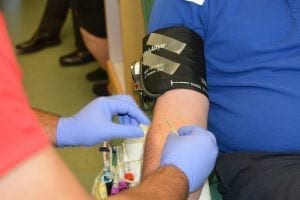A drug called Hemlibra that is currently only approved for treating a subset of patients with haemophilia A has been found to be effective for wider use, reports Hemophilia News Today.
Haemophilia is a rare genetic condition that prevents the blood from clotting. Due to its inheritance pattern, it usually affects men. People with haemophilia lack substances called clotting factors in their blood that combine with platelets to form blood clots. As a result, their blood does not form clots as easily and people with the condition may experience frequent and prolonged bleeding. The two most common forms of the condition are haemophilia A, which is caused by a lack of clotting factor VIII, and haemophilia B that is linked to factor IX. One of the main treatments for the condition is artificially replacing the missing clotting factor through replacement clotting factor infusions. However, as new medicines develop this may change. Click here to learn more about haemophilia.
The company Roche, which produces Hemlibra, have announced the results of two clinical trials called HAVEN 3 and 4 that show the drug reduced the incidence of treated bleeds by 68% in patients who were also taking replacement clotting factors, and 96% in patients who were not. Roche Chief Medical Officer Sandra Horning says that these trials
“reinforce the overall efficacy and safety of Hemlibra and its potential to improve care for all people with haemophilia A.”







